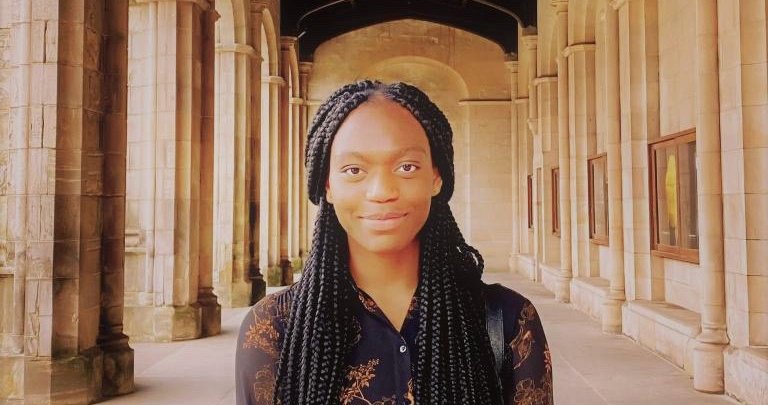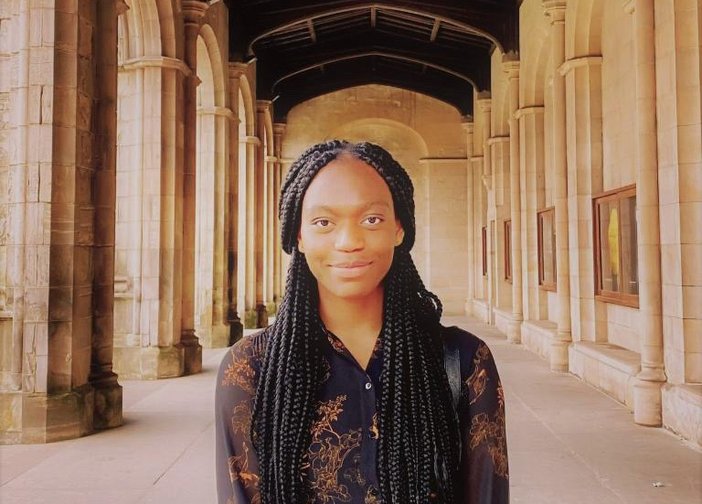
Uni ‘fuelled’ abuse of Black colleague who condemned Israel
University of St Andrews accused of ‘accepting false allegations’ against rector that sparked abusive comments
University of St Andrews accused of ‘accepting false allegations’ against rector that sparked abusive comments

Stella Maris has faced public condemnation and online abuse for taking an anti-war stance
Bosses at a prestigious university have been accused of fuelling racist abuse against a Black colleague who was accused of antisemitism for condemning Israel’s attacks on Gaza.
University of St Andrews rector Stella Maris wrote to students in November calling for a ceasefire and an end to the collective punishment of Palestinians. Following an open letter from some students accusing her of “fostering hate” and justifying the horrific acts of Hamas on 7 October, the university announced it was “utterly dismayed” and said it would investigate whether her message was “compatible” with her role.
In response, another open letter from 100 staff members accused the leadership of a “profound failure of due diligence in accepting false accusations” made about Maris. The staff pointed out Maris had explicitly denounced Hamas’s actions in her email. They also condemned the university’s failure to mention the barrage of abuse and harassment Maris had received.
Maris told openDemocracy: “At first, the sheer number of [messages] was overwhelming. And because at that point, the support hadn’t started coming in, it felt extremely isolating.”
She added that the university’s statement “formed part of the development of a biased media narrative that ignored the factual basis [she] provided for [her] claims”.
In their supportive letter, her colleagues added it was “deeply shocking to witness an all-white senior leadership team publicly condemn the only Black woman in the university’s governance structures for taking an anti-war stance”.
The letter added: “Moreover, it has exacerbated the injustice done to rector Maris by reiterating and amplifying these accusations and by itself wrongly accusing her of failing to use words responsibly.”
Having made previous statements about the queen, Iran, Afghanistan, and transphobic graffiti in her local area, Maris said she found it “frustrating” that her statement advocating for Palestinians was met with such fierce backlash. She also felt there was a lack of proper support from senior leadership in the wake of the abuse.
She said: “As a person with numerous learning difficulties, and mental health issues, that lack of support has made it difficult going into this situation, and very much feeling like the university that I’ve put so much of myself into – my time, effort and energy – is on the other side of this situation.
“I don’t have a tonne of resources, getting access to legal advice and support and things like that has been quite difficult.”
She added: “It felt like I’m not going to get help from members of the principal’s office or senior leadership because there’s this sense that I brought this on myself. That lack of visible support made it seem very much like the sentiment behind what I said was going to be hijacked.”
The university has since reaffirmed its “strong commitment to zero tolerance for any form of racism or hate”.
A university spokesperson said: “We were appalled that the rector experienced racist online abuse after setting out her personal views on the war in Gaza and Israel.
“A number of the University senior management team got to know Stella well and worked closely with her when she was a student and rector’s assessor, and all of those people have reached out to her to offer support after she became rector in November last year and after she issued her message.”
It added there is no evidence the online abuse came from any student or member of staff at St Andrews.
Maris had accused Israel of “apartheid, siege, illegal occupation and collective punishment” against Palestinians. Her email also provided links to sources for students, including social media accounts of Palestinian journalists, ceasefire petitions, and details of where to find information about local protests.
Her statement condemned “any form of bigotry” and denounced the actions by Hamas on 7 October as war crimes. She told openDemocracy that antisemitism goes against “everything [she] stands for”.
Members of staff said while the university pays attention to “baseless criticisms” against Maris, “the senior leadership team has ignored the fact that there is considerable support for her and for a ceasefire among the student body”.
Maris was elected to the three-year presidential role by students in October. It involves providing pastoral support and ensuring that student voices are heard and elevated.
Since news broke of the investigation, she has received hateful online messages seen by openDemocracy, a number of which have been on the basis of her race, calling for her deportation and accusing her of “Black privilege”.
She told openDemocracy she has been sent “all sorts of horrendous things” including “incredibly graphic emails [about sexual assault] sent with no regard to things like trigger warnings… and the impact that might have on me as a person”.
One email sent to Maris read: “Clearly to her, Black lives matter but Jewish ones do not.”
Another message called her a “moral abomination of a human being” and accused her of being a “racist Hamas/Boko Haram terrorist”. Boko Haram is an Islamist militant organisation based in north-east Nigeria which she believes was only mentioned due to her Nigerian heritage.
A university spokesperson said: “The university has arranged for Stella to have direct personal support from a former senior member of staff with experience in counselling and support, and we are pleased she is availing herself of that support regularly”.
As the death toll in Palestine surpasses 27,000 according to the Gazan Health Ministry, Maris said the row on her accusations against Israel has felt like a “distraction”.
“There is absolutely a problem with antisemitism on the rise but it's also about recognising that it has been weaponised in silencing pro-Palestinian voices. For other people who've tried to speak publicly about this, we've seen so many of them lose their jobs,” she said.
University staff echoed this in their letter of support: “We too reject antisemitism and Islamophobia. But we also reject the zero-sum framing of these problems, as if action against the one invariably implies excusing the other. We reject the claim that calling for a ceasefire entails valuing Jewish or Israeli life any less. Such claims echo those of the Israeli state and its allies including in the UK government and official opposition.”
A number of experts have referred to the ongoing Israeli violence against Palestinians as a genocide, including lawyers acting for South Africa in its case at the International Court of Justice, human rights campaigners, and academics.
A recent report by advocacy group CAGE International found there has been an “alarming increase” in the number of cases involving attacks on expressions of support and solidarity for Palestine across the UK.
Maris told openDemocracy that she has no intention of resigning from her post. Findings of the investigation are set to be reported to the university court in the early part of 2024.

